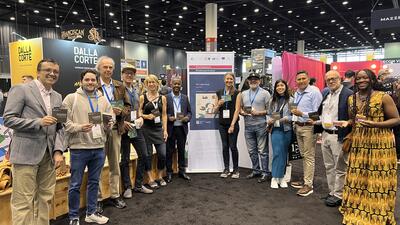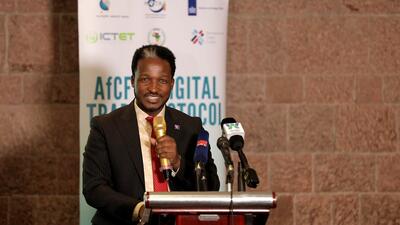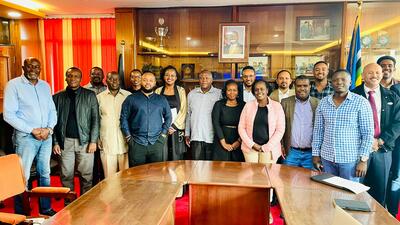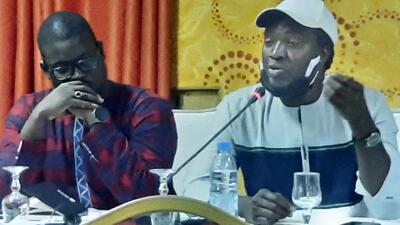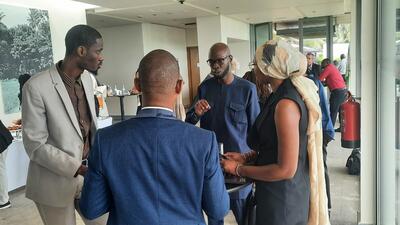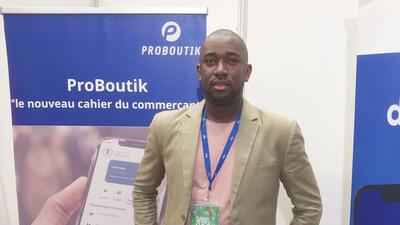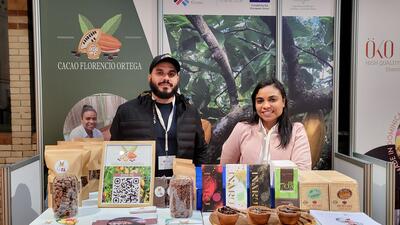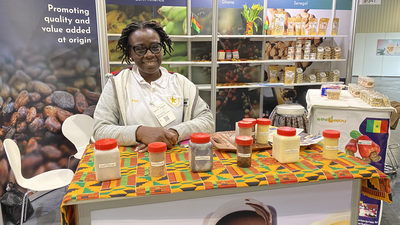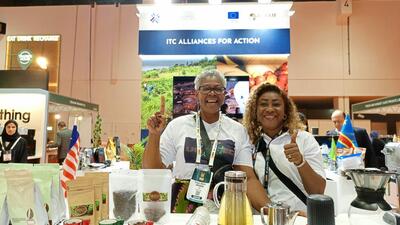
ITC promotes circular economy at Specialty Coffee Expo
ITC's Alliances for Action went to the Expo in the US city Chicago, to promote circular economy in the coffee sector.
Specialty Coffee Expo highlights that the coffee industry is going green
The climate crisis, long felt by coffee producers, is increasingly affecting the entire sector. Erratic weather and crop issues have helped drive coffee and cocoa prices to all-time highs, causing financial ripple effects.
With a growing awareness that humans are pushing past the planet’s limits, the world is moving toward net-zero carbon commitments. Taken together, it’s not surprising that environmental sustainability is a top priority for coffee businesses, with movements like organic, regenerative agriculture, and circular economy finding their place in the limelight.
This year’s Specialty Coffee Expo, which attracted a record 17,000 visitors, confirmed this trend toward sustainable products and practices. The 2024 Best New Product winners included GrainPro’s compostable green coffee sample pouch. The Colombian brand CoffeeKreis won the Elevating Dreams, Erasing Divides pitch competition with their cup made from spent coffee grounds.
The International Trade Centre (ITC) participated with its Coffee Guide Network, The Latin American and Caribbean Network of Fair-Trade Small Producers and Workers (CLAC), Fairtrade International, and three coffee cooperative unions from ITC’s Netherlands Trust Fund V (NTFV) programme in Ethiopia.
Promoting a circular economy in the coffee sector
ITC’s Coffee Guide Network organized a Circular Economy Expo Tour in collaboration with members of its Circular Economy Working Group and the Center for Circular Economy in Coffee (C4CEC).
The event convened actors at different stages of the so-called ‘coffee value circle’ – as opposed to the traditional, linear coffee value chain the circular economy model proposes to reform. Participants exchanged ideas around circular innovations at the SCA Community Lounge, such as NAOX, a ready-to-drink health beverage that uses coffee mucilage concentrate, manufactured by CoopeAgri in Costa Rica.
Participants included contributing authors of the working group’s new paper, Making a Case for Circular Economy in the Coffee Sector, soon to be expanded in the joint ICO Coffee Development Report this September.
The paper finds that the global coffee processing generates nearly 40 million tons of biomass each year. While the entire coffee plant has unique bioactive compounds that are valuable in a range of products, only 1-5% of the original cherry ends up in our cup. This highlights a missed opportunity for both value creation and waste reduction.
The Coffee Guide Network and C4CEC will share more circular economy innovations in an upcoming webinar series starting 22 May and during Green Coffee Connect at World of Coffee, Copenhagen.
About the projects
ITC’s Alliances for Action initiative leverages partnerships for sustainable food systems. It does this through collaborations that cultivate ethical, climate-smart, sustainable agricultural value chains. It aims at achieving resilience and growth for farmers and MSMEs through more mindful and responsible trade, production and consumption systems and improved opportunities to compete on a global market, all strategies that align with the circular economy model. It is also behind ITC’s popular Coffee Guide, 4th Edition and the Coffee Guide Network.
The Netherlands Trust Fund V (NTF) (July 2021 – June 2025) is based on a partnership between the Ministry of Foreign Affairs of The Netherlands and the International Trade Centre. The programme supports MSMEs in the digital technologies through its EcomConnect programme and agribusiness sectors through its Alliances for Action programme. Its ambition is two-fold: to contribute to an inclusive and sustainable transformation of food systems, partially through digital solutions, and drive the internationalisation of tech start-ups and export of Information Technology & Business Process Operations (IT&BPO) companies in selected Sub-Saharan African countries.




